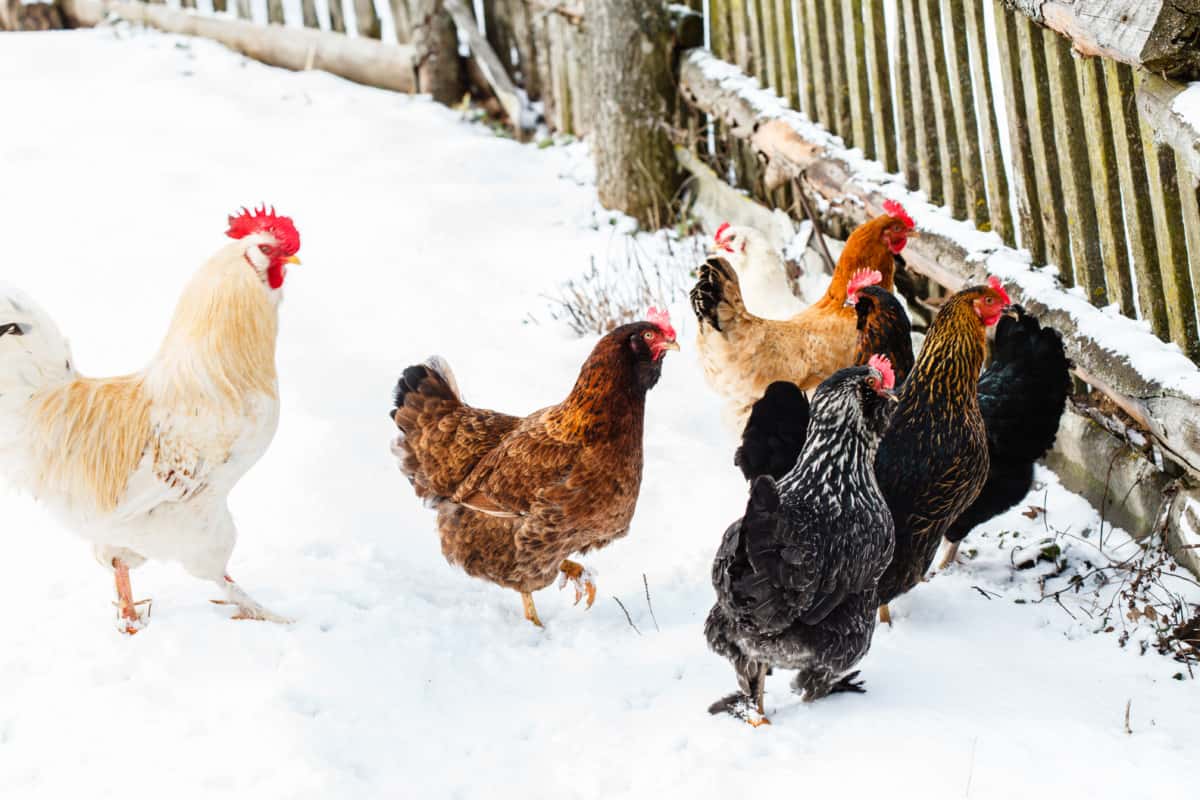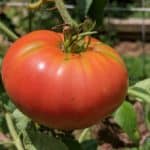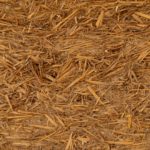Soon the warm days of summer will become fresh and crisp. Your chickens will have enjoyed every moment of summer with all its green bounty and outside freedom.
But soon, it will be winter, and in some areas, that can mean a drastic temperature change. It is natural to be concerned about whether your chickens will survive winter.
Chickens can survive winter if they are provided they have an adequate shelter where they can stay dry. Adult birds with good plumage can withstand even extremely cold temperatures, and no additional heating is required. Some breeds are more resistant to very low temperatures than others.
Keeping your flock of chickens healthy over the winter months is not just about providing shelter. The cooler weather brings with it quite a few other challenges that need to be taken into account that will keep your feathered flock in great condition no matter how cold it gets.
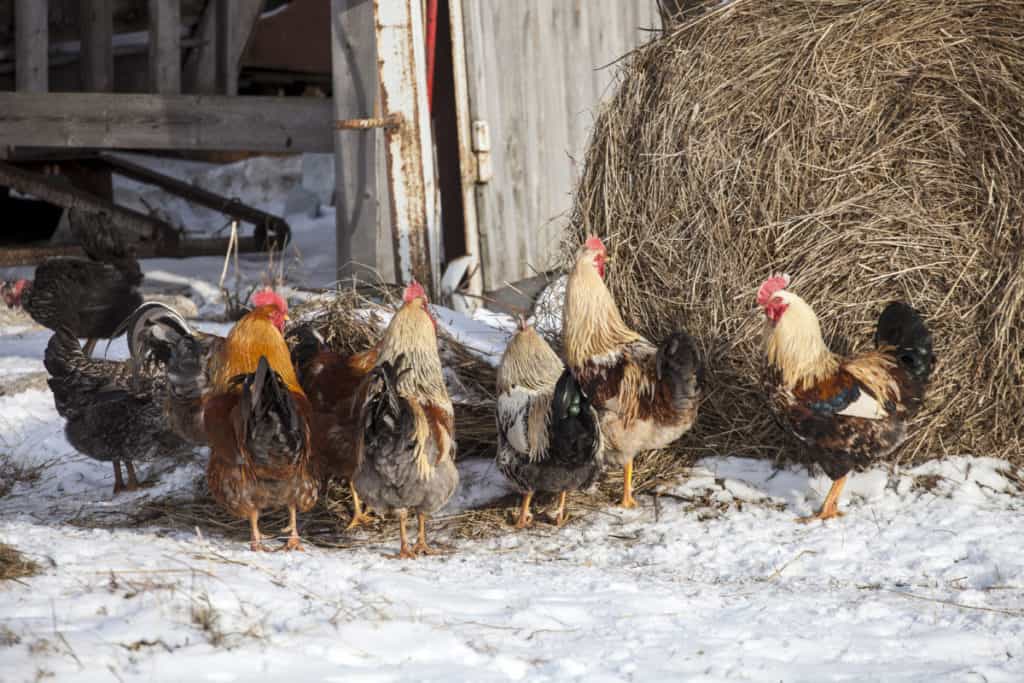
Preparing Your Chicken Coop For Winter
There are two main features that you should check when preparing your coop for the winter months. These are insulation and ventilation. Let’s look at each of these more closely.
Insulation
To shelter chickens from freezing weather, coops must be free of icy drafts. The inside of the chicken coop should stay a few degrees warmer than outside, but there should not be a massive temperature difference between inside the coop and the outside weather.
The enemy is any icy wind gusting in from outside.
Areas Of Special Attention When Insulating
| Walls, door frames, and window frames | Before winter sets in, be sure to seal any cracks around window frames and between boards. Silicone caulk can be used to seal most areas. Larger cracks may require expanding foam. This process should be done ahead of winter as these products may not readily set if the weather is icy. Caulking products and sealants are readily available at all hardware supply stores. Another option is to wrap the outside of your coop with Tyvek or tar paper. Tyvek is handy because while it provides good insulation, it has breathable pores that allow moisture vapor to escape. |
| Floor | Cover the floor with a layer of hay or straw. It will keep the birds off the cold ground. |
| Perches | Replace your chicken’s perch with a wide plank in winter. It should be wide enough to cover the entire surface area of their feet. In this way, their bodies will entirely cover their feet while they are roosting. Perches should never be made of metal as it can become extremely cold, which can lead to frostbite. |
| Windows | Keep the windows clean. Allow as much sunlight as possible to stream in. |
| Roof | Check that the roof of your chicken coop is sturdy enough to withstand the weight of heavy snowfall. Ensure that there are no holes where melting snow could leak into the coop. |
Ventilation
While it is vital to keep icy draft away from your chicken’s roosting areas, it is equally important that there is no buildup of humidity in the coop. Chickens can tolerate cold, but they will not survive if the soft, warm feathers against their body become damp. Wet feathers mean they cannot keep themselves warm, which is deadly.
If you notice any dampness on your hen’s feathers, you must immediately take them inside and dry them off – use a hairdryer on low heat if necessary. They cannot withstand cold temperatures if their feathers are wet.
Besides the chickens themselves getting damp, a sealed, moist creates an unhealthy environment. Chicken feed and bedding can quickly become moldy and release harmful spores into the enclosed space.
When the nitrogen in chicken manure breaks down, ammonia is released. It is therefore important that the chicken coop remains well ventilated to release these harmful fumes.
Chicken coops must be well ventilated at the top, preferably directly above where the chickens roost.
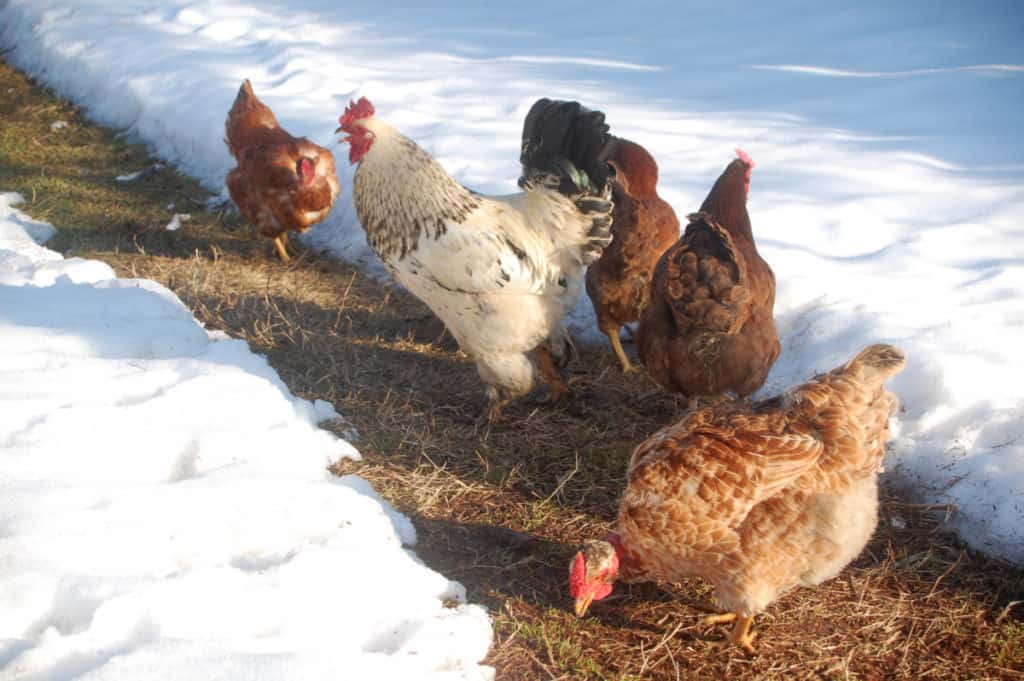
Drinking Water during the Winter
Ensuring that you provide your birds with a consistent source of liquid water is crucial. Keeping your water bowls free of ice during winter can be a challenge.
Chickens can quickly die of dehydration if they don’t have access to drinkable water.
Here are some tips you can try to keep your chicken’s water from freezing:
- Use a heated dog water dish – this is one of the most popular methods used by those who have electricity access in their chicken coops. Be aware of all safety precautions when using electricity around inquisitive birds and flammable grass.
- Avoid using metal dishes. It is recommended to use a rubber water container which will freeze less quickly.
- In areas where temperatures dip just under freezing and aren’t too severe, pop a few ping pong balls into the water bowls. As they bob about, the water moves, preventing the top layer of ice from forming so quickly.
- The old-fashioned tried and tested method is to replace frozen water with warm water that you bring in every few hours. This method is labor-intensive, but many people do manage this successfully. You won’t need to carry buckets of water in throughout the night as the birds roost, but it is vital to ensure that there is always enough to drink during the day.
- Use a commercially available insulated chicken drinker. These drinkers are usually insulated with a product like polystyrene on the inside, which keeps the water from freezing.
A note about water – it is never a good idea to keep your water source close to where the chickens eat and sleep.
Some chicken owners only keep the water sources outside the door of the coop, even during winter. If water spills and sloshes about inside the coop, it could lead to damp conditions and moldy bedding.
So every caution needs to be taken to ensure that your chickens always have water, but it needs to be positioned where it cannot cause any problems if it spills.
What Should I Feed My Chickens During Winter?
Besides their usual chicken feed, your chickens will benefit from some added ‘super foods’ during winter. You can add oatmeal, sunflower seeds, or dried mealworms to provide some extra energy. And don’t forget the greens!
In northern states, it is advisable to ensure that you always have a few week’s feed available in case sudden winter storms disrupt your ability to get to the feed supply store.
Winter temperatures, particularly in cold-tolerant breeds, can be endured without additional heating for chickens. The body temperature of a chicken is around 106°F, and they have feathers to protect themselves from the cold.
Can I Let My Chicken’s Go Outside in Cold Weather?
Chickens love being outside, no matter the weather. Exploring and scratching is what they naturally do, and they should be allowed to go out as often as the weather allows.
They will enjoy it if you provide a base of straw a short way outside their coop to keep them raised off any ice or snow. Their coop must remain open while they are outside to allow quick access back into their shelter.
How Do Chickens Keep Themselves Warm?
If you have seen a chicken molting, you will know that there are layers of fine soft feathers below the big exterior feathers. Feathers must remain dry at all times during cold weather.
Fluffy feathered breeds, for example, Wyandotte, Brahmas, and Orpingtons, are well suited to cope with freezing temperatures.
Other Chicken Dangers During Winter
Predators
During the cold months, there will be a notable increase in hungry predators that will be eager to snatch up your lovely, plump hens. Winter is tough on everyone, so be on high alert while your chickens are outside in case a hawk or owl targets your coop.
Rodents
You may also find more rodent activity inside your coop over the cold months. It is important to keep all feed securely closed in rodent-proof bins. Do not leave feed bags that they can chew through laying around that rodents could get into and cause spoilage.
Mold and Spores
Always be careful to keep your coop clean – especially during winter. As the chickens will be spending more time indoors, they will naturally be scratching about more inside. It is therefore important that the bedding on the floor of your coop is changed regularly.
Although it may look snug and your chickens may enjoy perching on them, storing hay bales inside your chicken coop. They quickly become soiled and moldy inside when the chickens poop on them.
Frostbite
Although chickens can usually handle freezing conditions, they may occasionally get frostbite on their combs and feet since they are not protected by feathers. Breeds with larger combs are especially prone to this.
Most chicken owners keep a jar of Vaseline jelly or soothing beeswax formula on hand to treat any sign of frostbite on their birds immediately.

Conclusion
While your chickens may require a little extra attention during the winter months to keep them healthy, there is no reason why they won’t continue to thrive if provided with the right conditions.
Provided they have adequate shelter, food, and drinkable water, they will amaze you with their fortitude even through the most inclement weather conditions.

